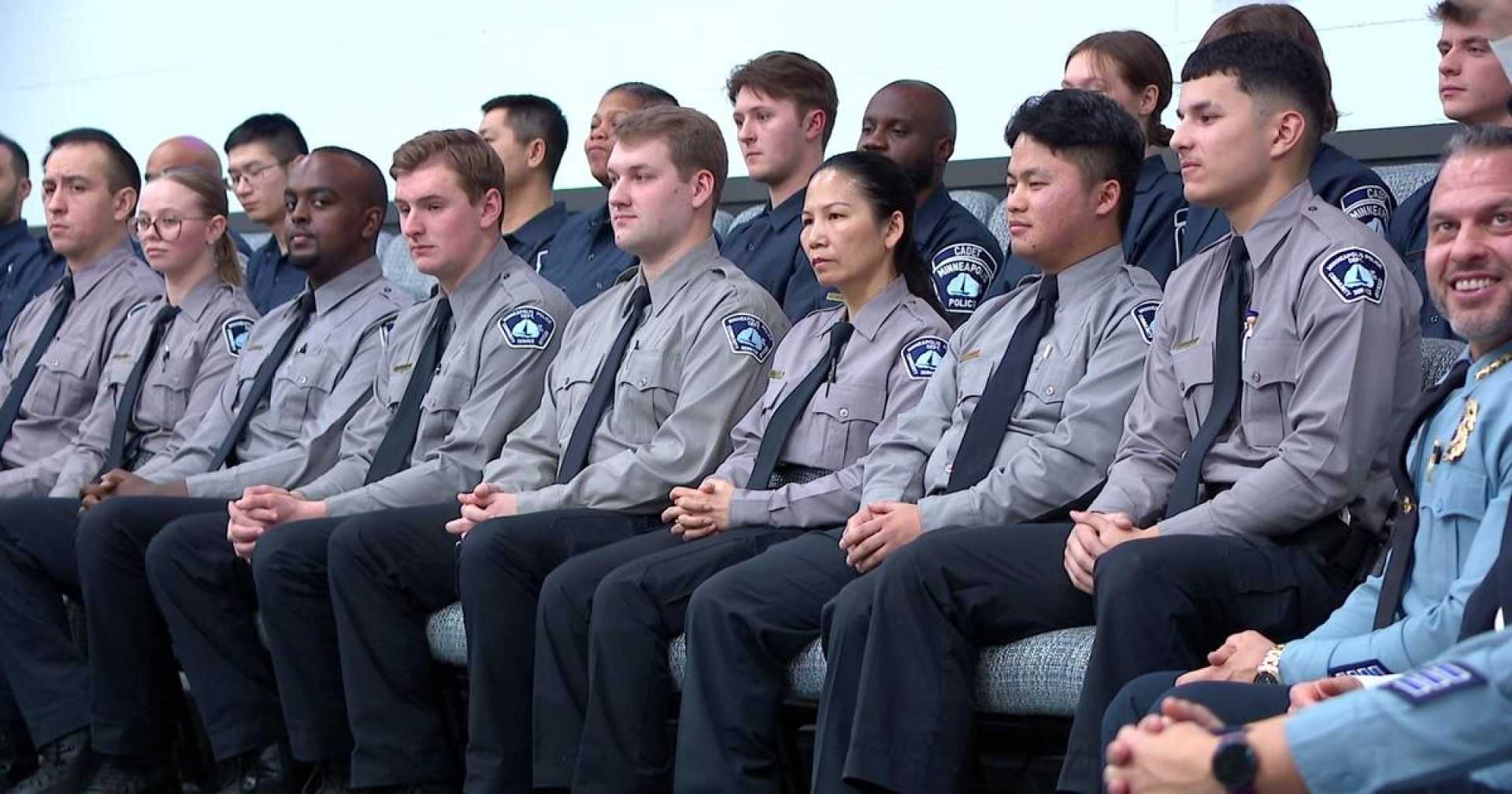News
Minneapolis Police Department Welcomes Largest, Most Diverse Cadet Class in Years

The Minneapolis Police Department (MPD) celebrated its largest and most diverse cadet and community service officer (CSO) class in years during a ceremony at a north Minneapolis church on Tuesday. The class of 32 cadets and CSOs, hailed as a significant step toward rebuilding the department, received a warm welcome from city and state leaders.
Mayor Jacob Frey emphasized the importance of the moment, stating, ‘There were years where the thought of joining the Minneapolis Police Department was not a thought that people were following through with.’ The department, which currently has 579 sworn officers—far below its peak of about 900—views this class as a turning point in its efforts to rebuild trust and diversify its ranks.
Chief Brian O'Hara highlighted the diverse backgrounds of the new recruits, noting that some were born in countries such as Somalia, Turkey, Taiwan, Vietnam, and Laos. ‘They want to be here because they want to be part of the change,’ O’Hara said, referring to the department’s ongoing transformation following years of scrutiny and reform efforts.
CSO Joel Santana, one of the new recruits, shared his motivation for joining the department. ‘I want to be part of an organization that values community engagement, respect, and accountability,’ Santana said. ‘My journey becoming a CSO was about gaining hands-on experience and learning what it truly means to serve in law enforcement.’
While the cadets could be sworn in as officers as early as this summer, the CSOs face a longer journey, including completing a two-year law enforcement program. The department hopes this class marks the beginning of a sustained trend toward greater diversity and community-oriented policing.
The ceremony comes as the MPD continues to implement reforms under both state and federal consent decrees aimed at overhauling policing practices. These agreements, which include bans on chokeholds and neck restraints, as well as enhanced oversight and accountability measures, are part of broader efforts to rebuild public trust in the wake of George Floyd‘s murder in 2020.












